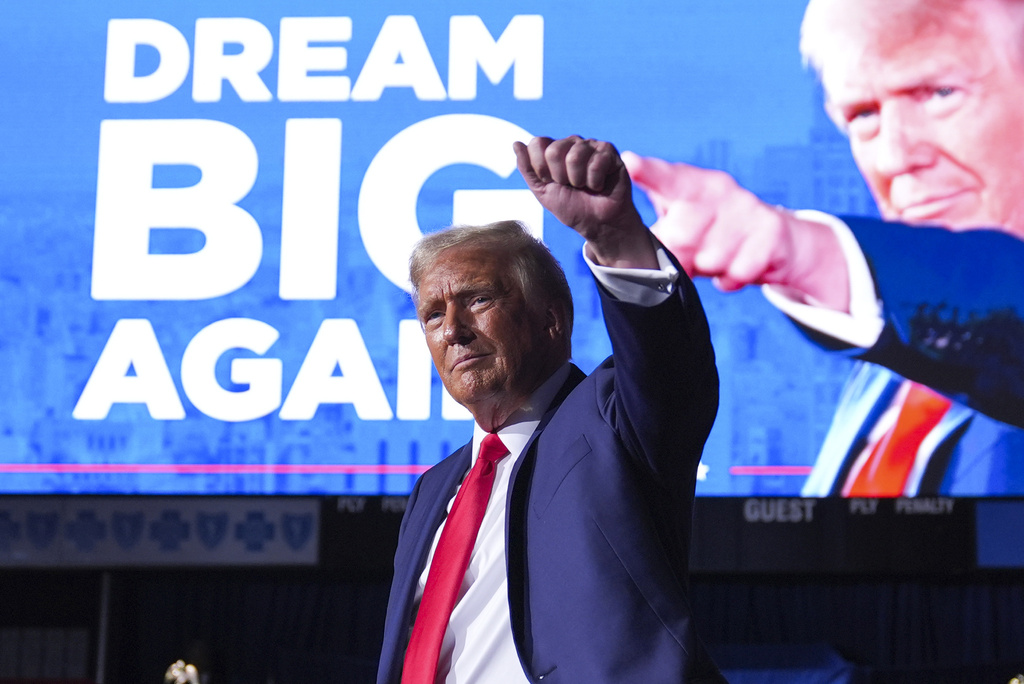Today, voters head to the polls to decide who will run the United States for the next four years. If Trump should win, relations with the EU could become extremely tense, as a Trump administration could begin to wield powerful sanctions against countries — and even Brussels itself — it deems to be in violation of democratic principles and protections of free speech.
For one, Brussels has been hitting Hungary with sanctions, freezing billions owed to Budapest over “rule of law” and generally working to oust the ruling government. Viktor Orbán has openly come out in support of Trump, and both of them enjoy a warm relationship, and more importantly, they share the same ideology on many key issues, including migration and a pro-peace path in Ukraine.
It will likely not be business as usual if Trump comes back to power. Countries like Hungary would no longer be facing the full weight of the Western left. In fact, Trump could very well start playing hardball, issuing sanctions, travel restrictions, and new executive orders to prevent democratic backsliding in Europe. Notably, the rule-of-law sanctions being wielded by Brussels against member state governments it deems undesirable would likely be viewed from Washington as an anti-democratic form of blackmail. In turn, the U.S. could quickly counter such moves, including with “rule-of-law” sanctions of its own against Brussels.
If Germany moves to ban the Alternative for Germany (AfD), a Trump administration could move to counter this as well, including with sanctions against Germany due to democratic backsliding. Many may have already forgotten about the commando raid on a German publisher and journalists’ home over the summer. The German government, without so much as a court order, shut down an entire publication overnight. The publisher of Compact magazine, Jürgen Elsässer, was splashed across newspaper and television stations across the country in his bathrobe surrounded by officers in ski masks.
This is not normal behavior for a democratic country, and Trump’s administration may take action if further attempts are made to persecute journalists and shut down the free press in Germany.
What actions could Trump’s administration take in such a scenario? With Germany cut off from its traditional source of Russian gas, a move to restrict energy exports to Germany would be devastating. In other key areas, Germany and Europe are far more dependent on the U.S. than on vice versa.
Obviously, such a move would come with serious risks, including for the global economy, and potentially sparking a trade war. However, the U.S. would have most of the leverage in such a scenario. Europe needs U.S. energy, end of story.
The EU’s plan to restrict free speech and throttle X with fines could also result in sanctions on European companies, tariffs, and other forms of retaliation. Trump will likely be very willing to defend free speech across the world, especially after his own experience facing censorship across social media, and willing to use U.S. might to ensure this fundamental right on the web. His backers, most notably Elon Musk, will have a strong voice in the administration, and should Trump suddenly grow cold feet, he will face withering pressure from Musk and others.
Under Trump, free speech would still have a chance on platforms like X and others, even if free speech is already limited on those platforms. In turn, European conservatives, libertarians, and those opposed to mass immigration will be allowed to voice their opinions and influence the political debate in the coming years.
There are, of course, many open questions about how relations between Trump and the EU would develop, but it may obviously be a pointless thought experiment. In a matter of hours, days, or even weeks, Kamala Harris may be the decided winner. In such a scenario, the globe can also expect X to be shut down within a year or two, buried under fines and violations of the EU’s Digital Service Act. Brussels will continue to attack conservatives with its powerful sanctions mechanism. New forms of harassment and persecution, including arrests of politicians, journalists, and academics who support the “wrong opinion,” are likely as well.
The majority of Europeans may not like Donald Trump. As polling shows, Europeans, most notably Western Europeans, are very much opposed. Only a few countries from the east, such as Hungary, Bulgaria, and Serbia, support the former president, but in the end, he may be the only thing between a free web and a closed web, especially on the most important topics Europeans are increasingly not allowed to talk about. Furthermore, as opposition to mass immigration grows and other left-liberal agendas, there is no telling where European sympathies will likely be in the coming years.
In short, much is at stake for Europe in the outcome of this vote. The deck remains stacked against Trump. The U.S. voting system is in shambles, with votes being counted for days and weeks after election day, with ballots stuffed in drop boxes weeks before the election, and with ballot harvesters collecting ballots outside of any real oversight. Even basic safeguards like voter ID are nowhere to be found in many states. It will be a miracle if Trump wins, but we’ll know the results soon enough and will have to deal with the outcome — for better or worse.






